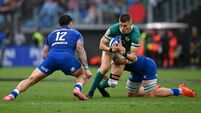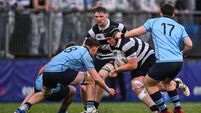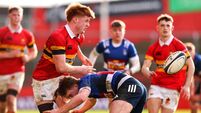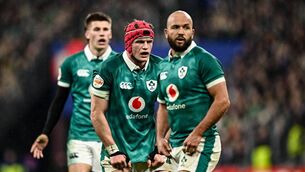Pushing and pulling
DENIS HICKIE scores them with scorching pace, Brian O’Driscoll scores them with dazzling pizzazz, the top two in Irish international rugby history locked in their own ding-dong try-scoring battle, a new target set, it seems, in almost every game.
With Hickie out injured O’Driscoll has an opportunity on Saturday in the Triple Crown game against the Scots to extend the new record he set last week against the Italians.















